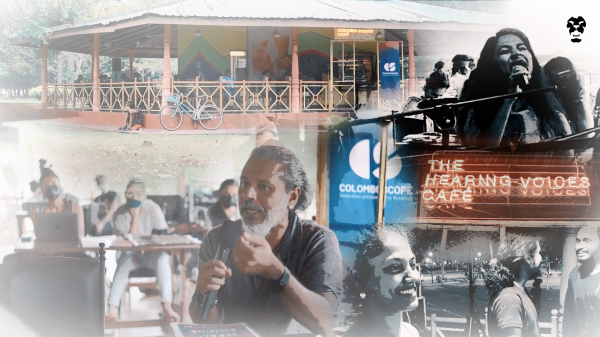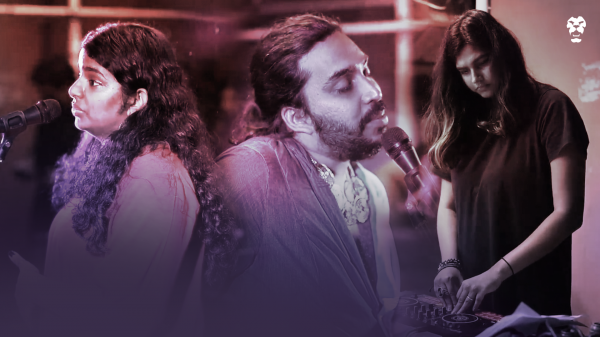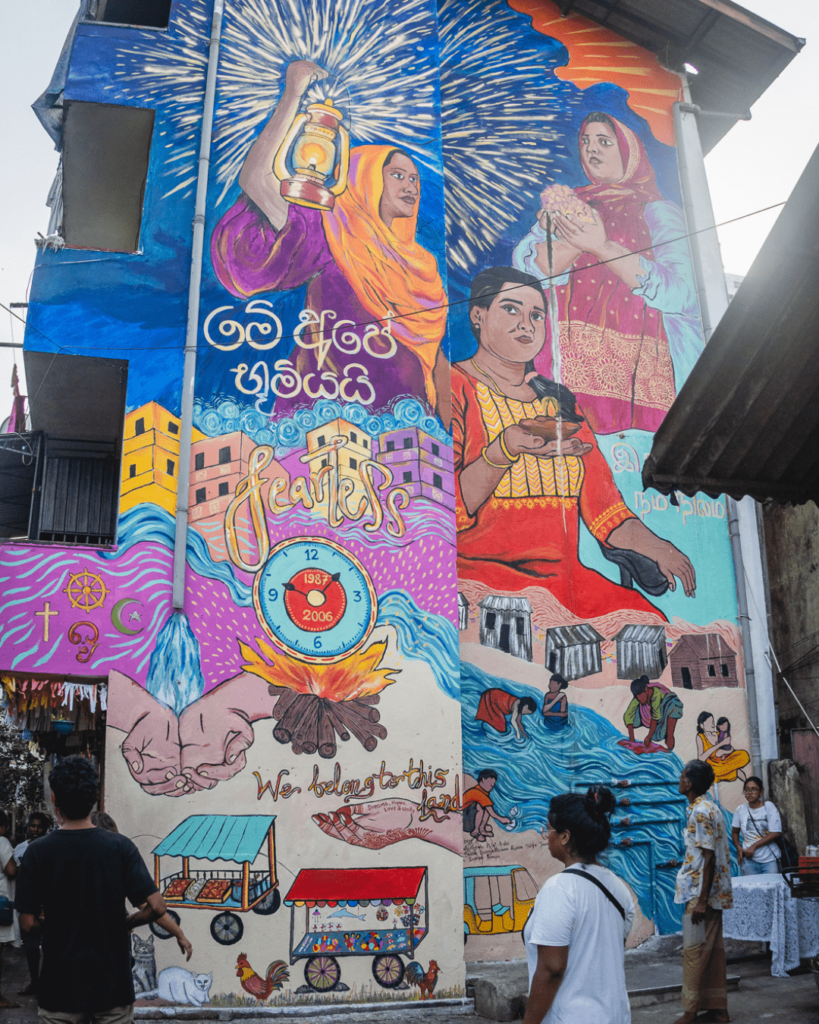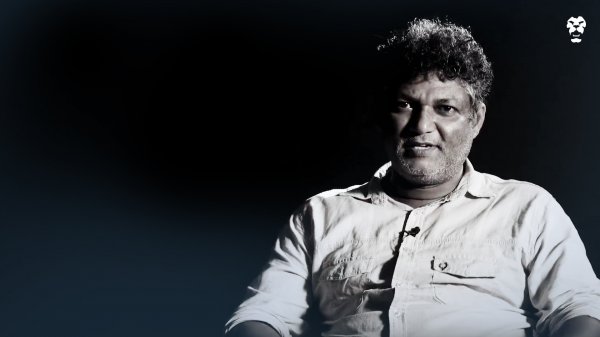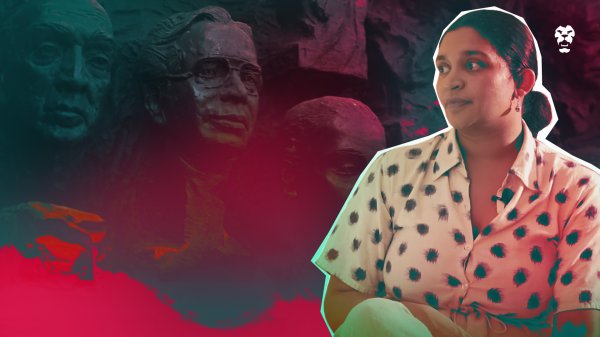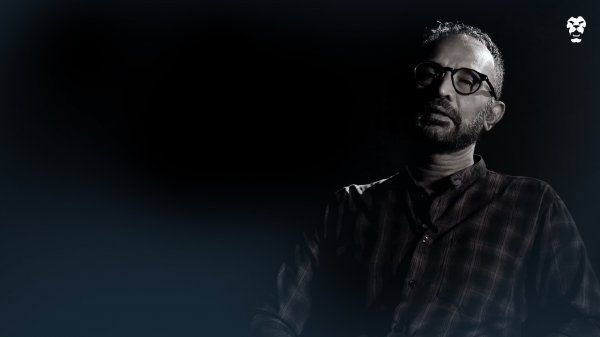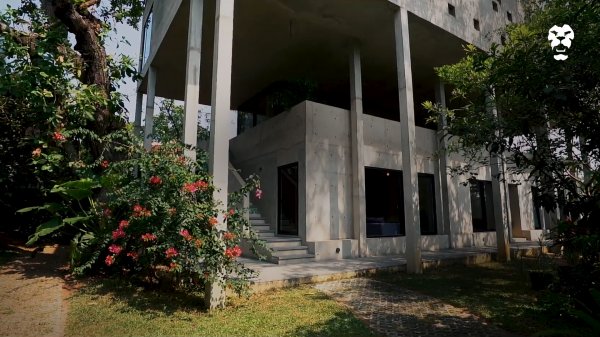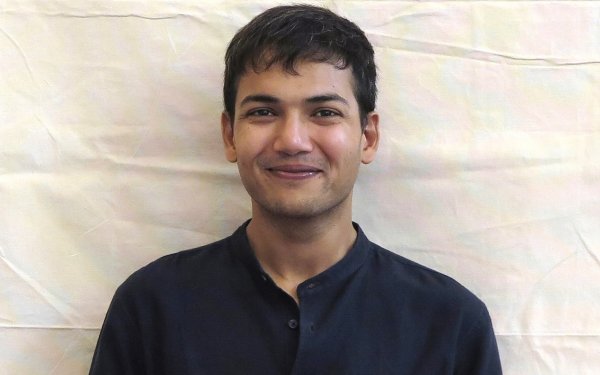
Colomboscope takes centre stage yet again in January 2022 under the theme ‘Language is Migrant’, bringing together artists from all corners of the world to showcase in Colombo’s leading contemporary arts festival and creative platform. To make the most of months spent in lockdown, the platform has been hosting online events to create safe, virtual spaces for artists to connect. Through workshops, live conversations, and performances, Colomboscope’s programme features a number of both local and international artists who address collaboration, community, and growth through art.
Speaking on the intention behind these virtual gatherings, Artistic Director Natasha Ginwala says, “It’s challenging to be apart while also working on a multifaceted project of this kind. Even within the island, it’s been a rare luxury to meet each other. With each virtual session including literary launches, creative dialogues and online performances, we have been aiming to bring small groups of practitioners together and introduce international and South Asian artists working on ‘Language is Migrant’ to our growing local community, engaging in longer-term as well as experimental collaboration.”
Artists Encounters
The first in its line of digital sessions was the Artist Encounters series, through which international and Sri Lankan artists convened over Zoom gatherings to learn about each other’s practices, production challenges, and converse around overlapping conceptual concerns laid out by the framework for this year’s festival. The series consisted of five private virtual sessions that are now part of a media archive exclusively available for viewing to partners and friends of the festival.
The series showcased renowned artists from Berlin to Nepal to New Zealand (Aotearoa), speaking on the ways in which they draw inspiration from their communities and work collaboratively to bring justice to their stories. Utilising different mediums and themes, each artist spoke extensively on how collaboration shaped their journey, their art, and their identity.
Local artist Hanusha Somasundaram spoke about how her art pays homage to her roots by utilising mediums found in her hometown in the central province of Sri Lanka such as tea powder and tea bags to portray the stories of Tamil estate workers, their lives, and their struggles.
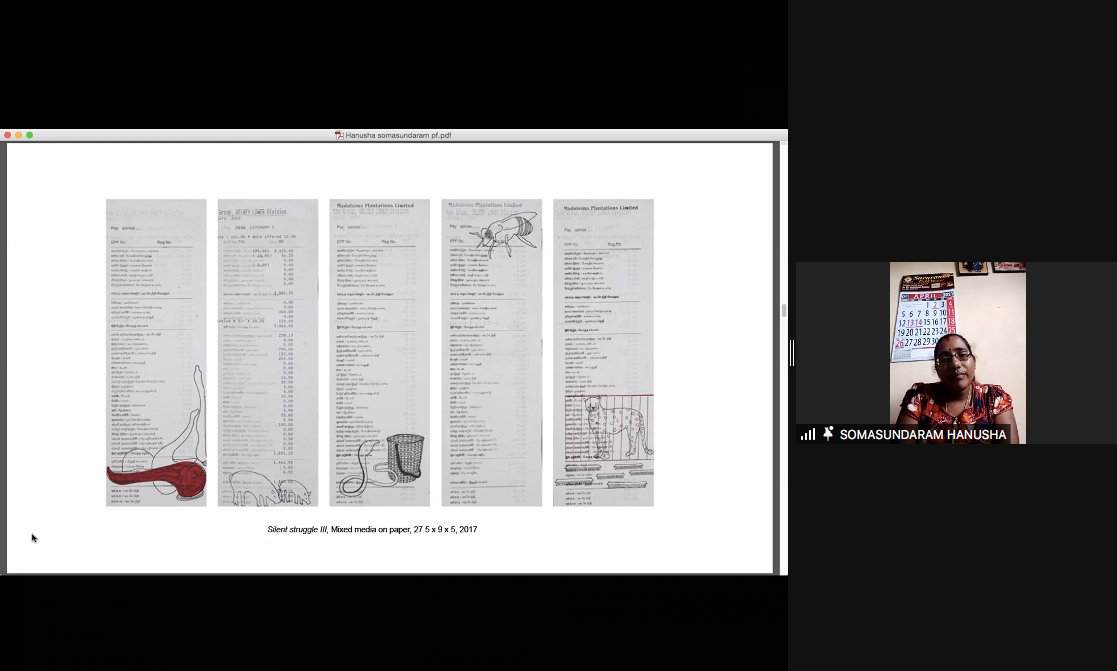
Lavkant Chaudhary from Nepal recalls a time in 2015 when the country was experiencing protests by its indigenous community due to its biased constitutional reforms, “At that time I was troubled by the incident so I started researching the issues of the indigenous person. I came to know that there were layers and layers of erasure of the history of marginalised communities.” Hoping to showcase their stories justifiably, Chaudhary encapsulates the struggles of his community whilst commemorating his own ancestry and identity through his art.
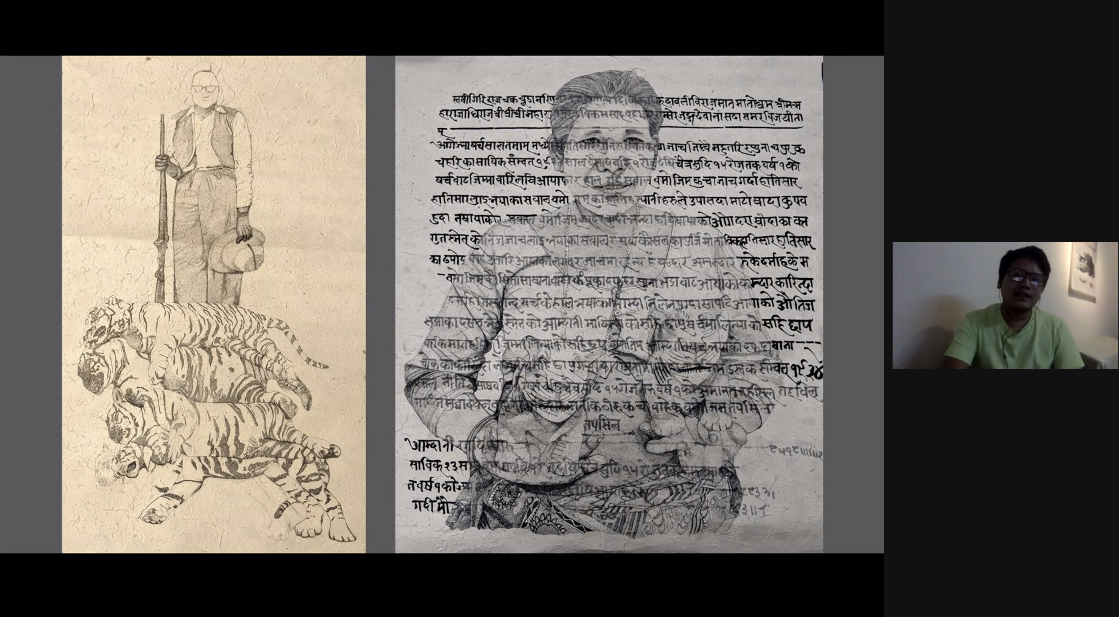
Reading in Tongues
Through the month of August, Colomboscope, together with Ishara Art Foundation, presented Reading in Tongues, a four-part virtual programme series including film-screenings, live conversations, talks, and a listening session with Cecilia Vicuña, Shalim M Hussain of the Miyah Poets, Vindhya Buthpitiya and Timothy P.A. Cooper; Shahzad Bashir, with Slavs and Tatars. The virtual programme leads up to a reading room initiative of the same name at the upcoming ‘Language is Migrant’ festival that was conceived as a time-space for assembling acts of reading, storytelling, performed, and sonic narratives.
‘Reading in Tongues’ is envisioned as a junction where estranged dialects, invented language, and sonic vibrations are embraced by engaged listening and performative reading. The initiative becomes an integral part of the Language is Migrant festival as its theme journeys from a poem-manifesto by Chilean artist and poet Cecilia Vicuña where she writes, “Words move from language to language, from culture to culture, from mouth to mouth. Our bodies are migrants; cells and bacteria are migrants too. Even galaxies migrate.”
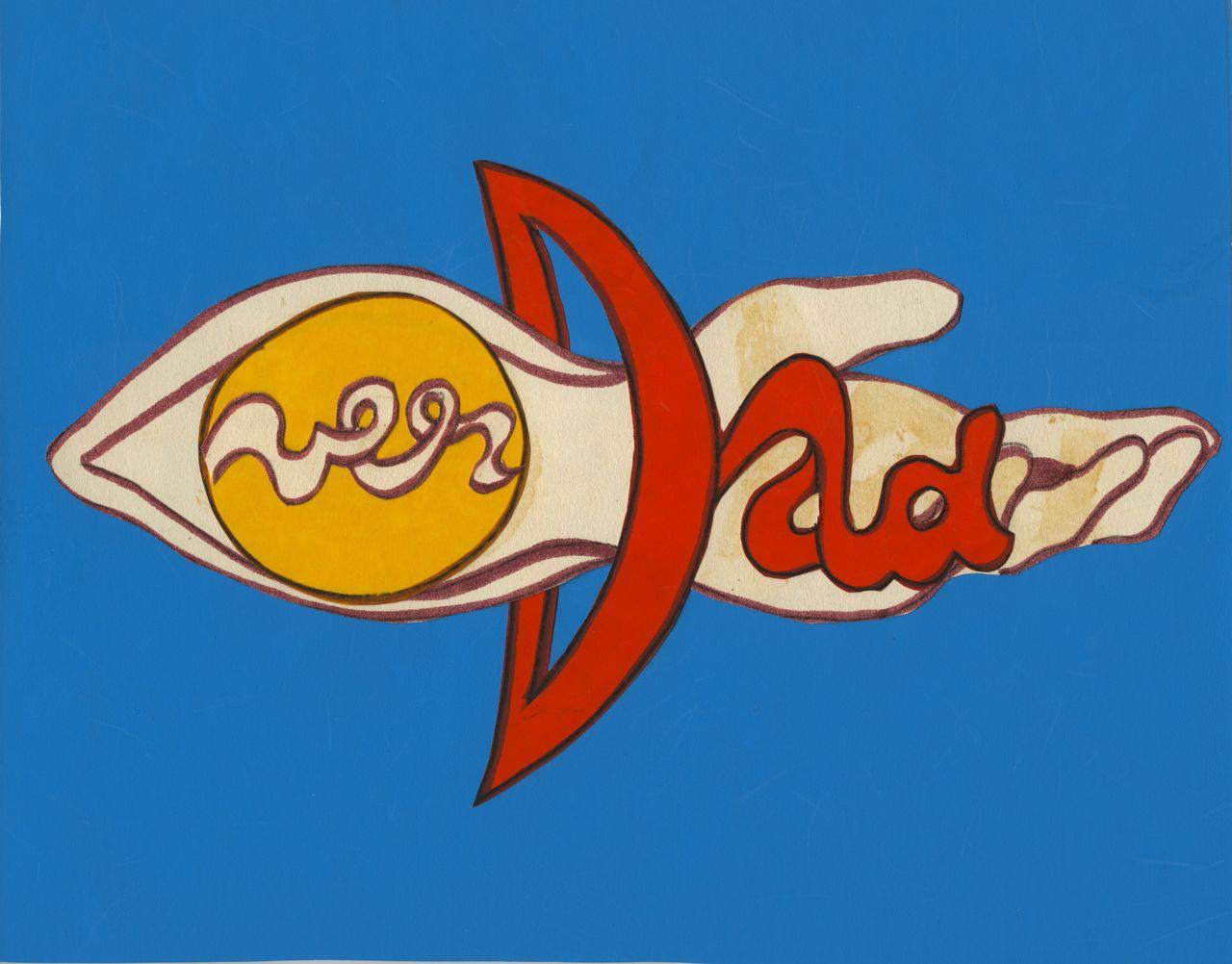
Time Documents
The online workshop ‘Time Documents: The processes of building collective memory through exhibition and live-art photography’ with Raisa Galofre took a small group of professional and emerging photographers through what documenting art exhibitions and performances – especially in the context of a pandemic – means.
In this comprehensive workshop, Raisa Galofre addresses the important role of photographers in accurately documenting specific moments in time, and facilitating exhibitions, festivals, and performances for future reference. “I’ve been reflecting a lot lately on what it means to document exhibitions, document artwork, and live performances in the context of a pandemic, and what our role as a photographer is. This workshop was a way of diving into these reflections that were already cooking in my head.”
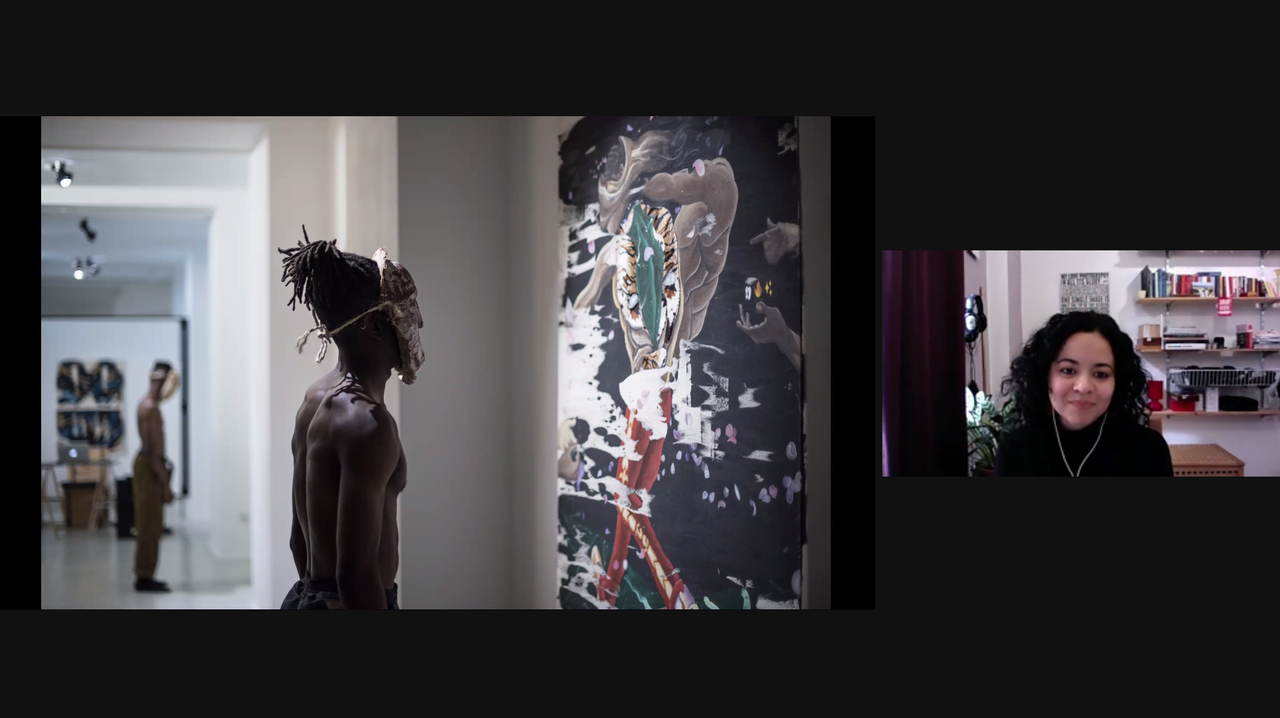
Walking as Alibi: The Dreams of Cynthia
The most recent in the series of Colomboscope’s lockdown workshops was a first-time YouTube performance by artist Pallavi Paul that revisits her 2017 film ‘The Dreams of Cynthia / Cynthia ke Sapne’ – a three-channel video installation chasing the inner life of its primary protagonist Cynthia. The performance included different collaborators to showcase the ways in which the voice takes over the frame, and addressed events that have been taking place over the timeline of this pandemic. The performance also dove into dealing with the mass distress of migration, migrant labour, and the impossibility of return to a pre-pandemic reality.
With plans to continue conducting virtual sessions throughout December, Colomboscope’s ‘Language is Migrant’ festival aims to showcase intergenerational cultural practices from across Sri Lanka, South Asia, and varied international contexts to foster global dialogue.
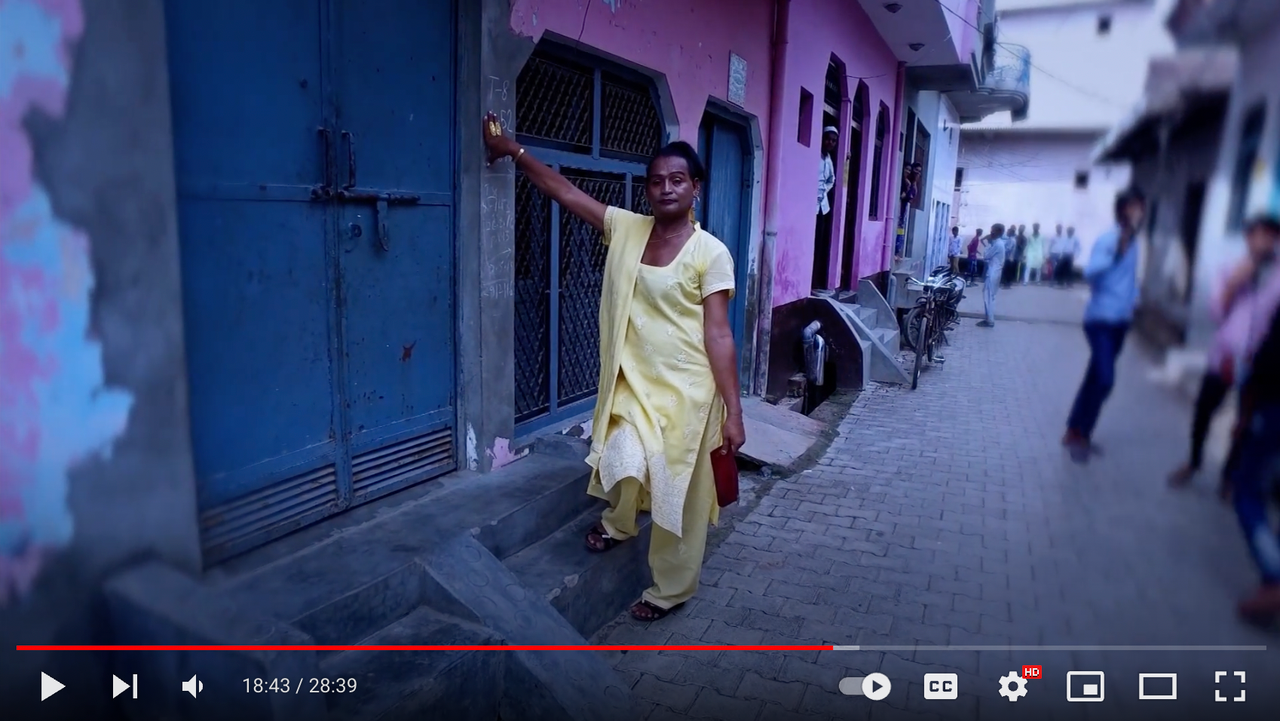
The festival is curated by Anushka Rajendran with Artistic Director Natasha Ginwala and is set to take place from the 20th – 30th of January in Sri Lanka. Leading up to the festival, Colomboscope’s Digital Programme is now available for discovery, alongside more details about the festival at https://www.colomboscope.lk/.

